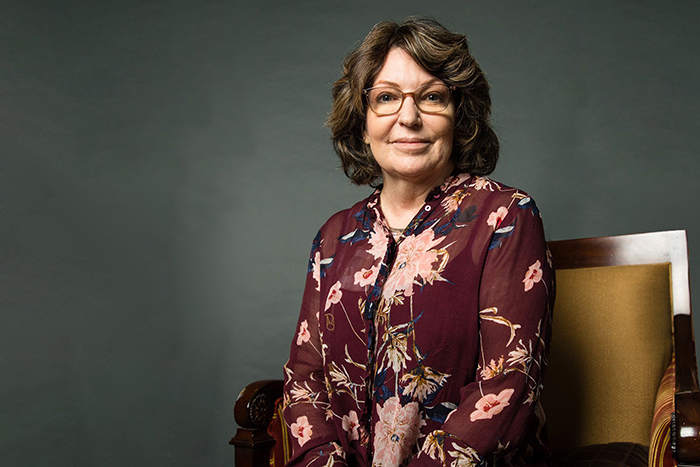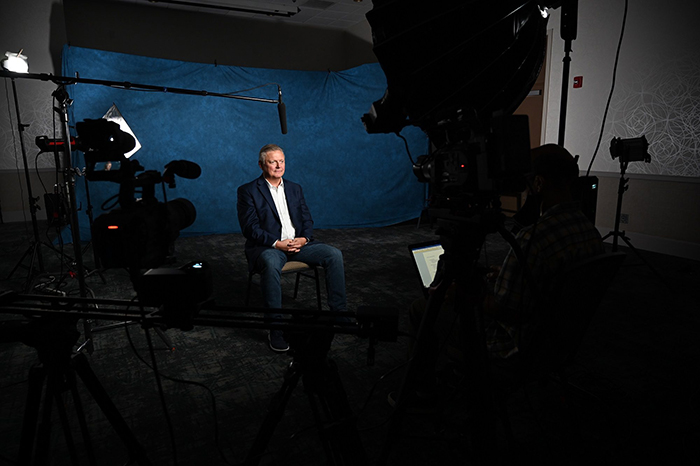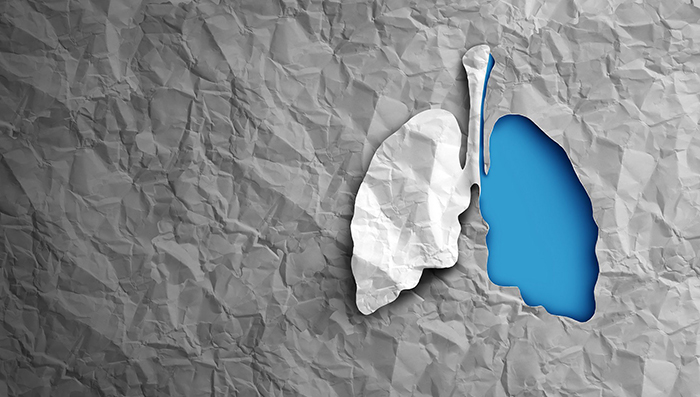Maryann Sanak was already impressed by Emory’s medical experts long before her doctor referred her to Winship Cancer Institute of Emory University to treat her leukemia. When Maryann was 13 years old, her mom was treated at Emory for a congenital heart condition. “It was just a perfect scenario for me,” she says.
Relationships and Stem Cells Made the Difference for this Leukemia Survivor
A Good Rapport with Her Doctors
Sanak’s first meeting with her Winship physician confirmed her positive impression. She described her as “bubbly but dead serious.” Their relaxed and friendly interaction helped both of them to relax while discussing Sanak’s very serious illness.
“Being comfortable and having a good attitude about it made me comfortable,” says Sanak. “We have a very, very good rapport. She’s my doctor but we’ve really kind of become friends, too.”
For her part, Sanak’s physician, Martha Arellano, says, “A large reason why I decided to specialize in treating cancer patients was to be able to treat the whole patient and establish long-lasting relationships with my patients.” She adds, “The patient-doctor relationship is so important, especially in treating cancer because there needs to be trust. Patients need to be able to trust that their doctor is doing what is best for them and that kind of trust isn’t built overnight. I like getting to know my patients and having them tell me about their family, home life, what is important to them, even their pets. I do consider Maryann my friend. She lights up my clinic when she comes in with her positive attitude and kindness toward our entire staff.”
Their friendly relationship mattered, particularly when Dr. Arellano shared the concerning news about the markers that showed the disease’s progression.
“Maryann, your markers, we just stopped counting after 10,” Sanak recalls Dr. Arellano telling her. “Oh, it’s really bad?” I asked. She said “yeah.”
Cancer care designed around you and your life.
When you come to Winship for cancer care, you have a team of experts dedicated to your well- being. If you have been diagnosed with cancer or need a second opinion, we're here for you.
Make an appointmentDiscussing Treatment Options
They had already discussed the prospect of Sanak needing either a bone marrow or stem cell donor. Unlike too many people in her position, Sanak was fortunate that one of her three siblings—the sister to whom she has always been very close—was a perfect match.
“I just knew that she was going to be the one that was going to save my life,” Sanak says.
She was surprised the stem cell transplant itself was so quick and relatively easy. “What’s so weird is you do all this preparation to have the transplant, they come in with the cells, they put it in your IV, and within 20 minutes your body has soaked it up. It’s that short of a timespan. I thought, this is only 20 minutes, but this is 20 minutes that saved my life,” says Sanak.
“Maryann was fortunate that her sister was a perfect match,” says Dr. Arellano. “Unfortunately, that is not the case for many of our patients, especially people from diverse ethnic backgrounds.”
Dr. Arellano pointed out that it’s easy to register to be a donor.
“Call or contact the Be The Match Foundation” she suggested. “It just takes a buccal swab and answering some questions on the registration form.”
How Winship Made All the Difference
Sanak spent the entire month of July 2013 at Winship. She was first put on the drug cytarabine until it became clear she was highly allergic to it.
“They almost lost me,” she says. She credits Winship’s clinical trials research for her survival. “Because I was at Winship, because of clinical trials, because of their extensive research, if I had not been at Winship, I probably wouldn’t be here today. They were able to give me another medicine in order to get me through those 30 days.”
“Maryann consented to be part of a clinical trial to determine the optimal regimen intensity of conditioning before allogeneic hematopoietic stem cell transplantation,” says Dr. Arellano. “At that time, the answer was not known and Maryann can take credit for being part of the team that deciphered this question.”
Noting Winship’s dedication to pursuing clinical trials to discover and improve cancer treatments, Dr. Arellano notes, “We are passionate about finding better and less toxic treatments for our patients, and clinical trials are the only way to do this. Clinical trials save lives.”
Gratitude bubbles through all of Sanak’s recollections of her experience at Winship. “I can’t thank Winship enough for being able to do that research and do those clinical trials, and for having the opportunity to receive that gift,” she says. “Like I said, I don’t know if I would be here had I not been at Winship from the very get-go.”
Be Your Advocate
Our cancer care team at Winship Cancer Institute is on the leading edge of exciting new therapies to treat blood cancers. We regularly work with our patients — including those looking for a second opinion — and advise them on the best path forward.
For patients who have been recently diagnosed with leukemia, the leukemia program at Winship Cancer Institute offers a multidisciplinary approach to care that caters to each patient’s individual needs, as well as provides the best care options and treatment plans specific to each case. For more information or to request an appointment with the leukemia program, call 404-778-0519.
Hearing you have cancer is never easy, but we’ll be with you every step of the way, providing support, helping you fight and giving you hope. Learn more about Winship’s approach and cancer care innovations.
As with all treatments, individual patient results vary. It is important to discuss your cancer treatment options with your physician.
About Winship Cancer Institute of Emory University
Dedicated to discovering cures for cancer and inspiring hope, Winship Cancer Institute of Emory University is Georgia’s only National Cancer Institute-designated Comprehensive Cancer Center, a prestigious distinction given to the top tier of cancer centers nationwide for making breakthroughs against cancer. Winship is researching, developing, teaching and providing patients novel and highly effective ways to prevent, detect, diagnose, treat and survive cancer. Cancer care at Winship includes leading cancer specialists collaborating across disciplines to tailor treatment plans to each patient’s needs; innovative therapies and clinical trials; comprehensive patient and family support services; and a care experience aimed at easing the burden of cancer. Winship is Where Science Becomes Hope. For more information, visit winshipcancer.emory.edu.
Related Posts
-
 A chest X-ray revealed Natalie had a rare cancer. When standard treatments failed, a clinical trial at Winship at Emory had positive outcomes.
A chest X-ray revealed Natalie had a rare cancer. When standard treatments failed, a clinical trial at Winship at Emory had positive outcomes. -
 Doctors used chemo and radiation before considering surgery for Johan's colorectal cancer. It worked. The tumor disappeared and surgery wasn't needed.
Doctors used chemo and radiation before considering surgery for Johan's colorectal cancer. It worked. The tumor disappeared and surgery wasn't needed. -
 Have you heard of biomarker testing? Learn how these tests can make a big difference in lung cancer survival and outcomes.
Have you heard of biomarker testing? Learn how these tests can make a big difference in lung cancer survival and outcomes.
Recent Posts
-
Feb 6, 2026
-
Jan 13, 2026
-
Jan 8, 2026
-
Jan 7, 2026
-
Jan 5, 2026
-
Dec 11, 2025

